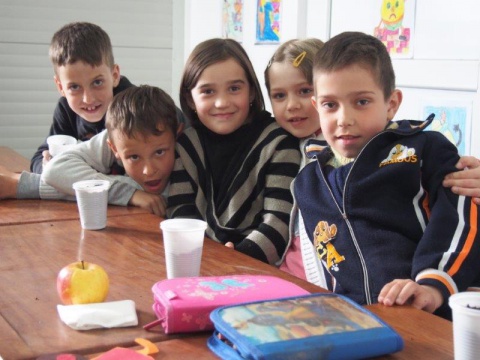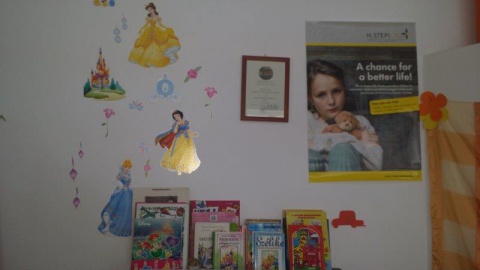
Valea Crisului is an area located in the central region of Romania with a population of about 2,200 people. You can find wonderful churches and Roman Catholic murals from the 18th century there. But as idyllic as it may sound, the community still faces major problems regarding the integration of its social and national minorities and also has to fight the high illiteracy rate amongst children and adults. The better part of the inhabitants is of Hungarian origin and there is a high share of Roma living in the community as well.The H. Stepic CEE Charity already supports a recreational centre for disabled people in the same village. In September 2014, the centre decided to go one step further.
It was then, that an After School Day Centre has been opened in cooperation with the local Fundacia Crestiana Diakonia, in order to provide support for disadvantaged children who are affected by social differences, unemployment or sickness of their parents, lack an adequate home and therefore face the risk of being institutionalised. The local teachers and a social worker collaborate closely with the childrens’ families and organise counseling sessions, general reunions and home visits. Altogether 28 children between the ages of six to twelve, benefit from the services of the Centre.
The After School Day Centre is fully supported by the mayor of Valea Crisului and the municipality, which provides the necessary rooms and facilities free of charge. Thus, the operation of the Centre in 2015 is secured.
The primary purpose of the After School Day Centre is to close the educational gap to non-Roma and non-disadvantaged children. The kids receive one hot meal per day and a safe place to stay, learn and play after school. They are supported in doing their homework and also get the chance to participate in informal learning activities, which stimulate creativity and talent development. Due to the fact that many of the children are living in a settlement with a lack of sanitary infrastructure, the children often are not even familiar with the most basic rules of hygiene. Therefore, they receive a hygiene “starting kit” from the Centre and are taught the importance of personal hygiene. Furthermore, there are also washing and laundry facilities at their disposal.
Some of the parents are reluctant when it comes to letting their children visit the Centre. Those parents are invited to come along to the After School Day Centre and employees of the Centre also pay them visits at their settlements in order to build trust and reduce prejudices.
Ultimately, the project’s goal is to significantly reduce the drop-out rate of school children in primary school and, through better education, give them better perspectives for their future. By providing assistance on various levels and with diverse projects, the Charity manages to provide sustainable help to these disadvantaged children, their families and therefore the entire region.















